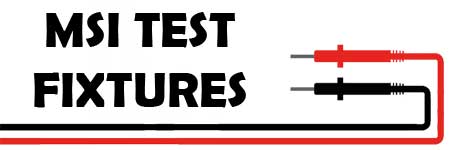PCB test fixtures offer several benefits to the agriculture industry, particularly in the context of modern agricultural practices that incorporate technology and automation. Here are some of the advantages of PCB testing in agriculture:
1. Reliable Farming Equipment: In the agriculture industry, PCBs are used in various farming equipment, such as GPS-guided tractors, precision planting systems, and automated irrigation controllers. By testing PCBs in these devices, farmers can ensure their reliability and proper functioning, leading to more efficient and precise agricultural operations.
2. Enhanced Precision and Efficiency: Precision agriculture relies heavily on technology-driven solutions to optimize crop yield and resource utilization. PCB testing ensures that the electronic components in precision agriculture systems work accurately and consistently. This, in turn, leads to enhanced precision in tasks like planting, fertilizing, and irrigating crops, resulting in improved efficiency and reduced resource wastage.
3. Data Collection and Analysis: Many modern agricultural systems incorporate sensors and data loggers to collect information about soil moisture, temperature, humidity, and other environmental factors. PCB testing ensures the accuracy and reliability of these data-capturing devices, enabling farmers to make informed decisions based on precise data analysis.
4. Reduced Downtime and Maintenance Costs: Agricultural machinery breakdowns can cause significant disruptions and downtime during critical farming seasons. Regular PCB testing helps detect potential issues in electronic components before they escalate into major problems. This proactive approach reduces unexpected breakdowns, minimizes downtime, and lowers maintenance costs.
5. Compatibility with Emerging Technologies: As the agriculture industry continues to adopt advanced technologies like IoT (Internet of Things) and automation, PCB testing ensures that the electronic components are compatible with these emerging technologies. It helps agricultural equipment integrate seamlessly into smart farming systems, enabling farmers to harness the benefits of interconnected devices and data-driven decision-making.
6. Environmental Monitoring and Control: PCB testing is essential in systems used for environmental monitoring and control in agriculture. For example, in greenhouse operations, PCBs are utilized in climate control systems, which regulate temperature, humidity, and ventilation. Ensuring the accuracy and reliability of these PCBs is crucial for maintaining optimal growing conditions and maximizing crop yields.
7. Compliance with Safety Standards: The agriculture industry is subject to safety standards and regulations, especially concerning pesticide application and irrigation. PCB testing helps ensure that electronic components used in agricultural machinery meet these safety standards, minimizing the risk of accidents or environmental harm due to faulty equipment.
8. Improved Sustainability: By optimizing farming practices through reliable PCB-tested equipment, the agriculture industry can reduce resource consumption, such as water and fertilizers. This leads to more sustainable agricultural practices, contributing to environmental conservation and long-term viability.
In conclusion, PCB test fixtures in the agriculture industry is integral to optimizing agricultural practices, enhancing efficiency, and embracing technology-driven solutions. It supports precision agriculture, reduces downtime, and ensures the reliability of farming equipment, ultimately contributing to increased crop yields, improved resource management, and sustainable farming practices.

